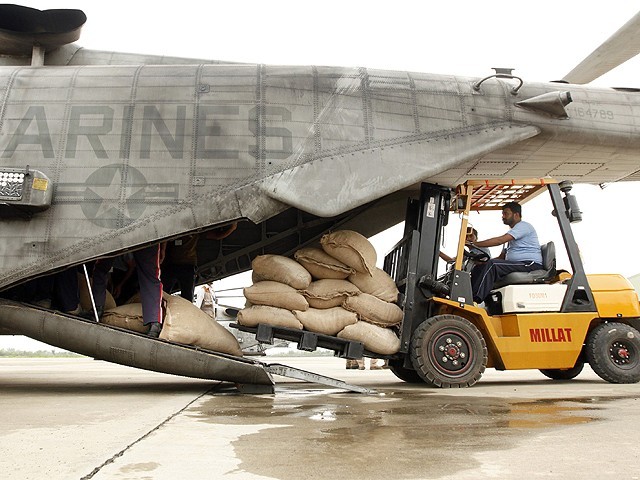
Easterly believes that economic development comes, not through aid, but through home-grown efforts of entrepreneurs and social and political reformers. It could also be added that strengthening of the civil society also helps in economic development.
Punjab seeks Rs115b foreign aid for mega project
Criticisms on government-to-government foreign aid can be divided into two groups. One group rests its claim on the technical evaluation of aid programmes, thus raising doubts about the efficacy of foreign aid, especially in relation to poverty reduction.
This group makes recommendations for improving the programme design and accountability mechanisms, but it accepts the basic paradigm of foreign aid that the poor need external help. This is aid managerialism.
The other group criticises foreign aid in terms of its probable use as a leverage to extend influence on the domestic policy of developing countries. This group raises fundamental questions about how the aid is structured and relates it with what they call a neo-imperialist agenda.
In most cases, 75% of aid money goes back to donor countries in the form of contracts and supply of goods. Governments are often engaged in a turf war when negotiating the terms of engagement with foreign aid agencies.
The currently enforced Foreign Contributions Act 2015 in Pakistan links the use of foreign aid with transactional approval from the Economic Affairs Division. This is aid politics.
The politics of US aid to Pakistan
There are important actors in foreign aid – the aid professionals, consultants, evaluators and international and local contractors. They associate themselves with governments, the civil society and donors.
More often than not, they broker the flow of aid between donors and recipients by preparing programmes, proposals and projects. Their interest obviously lies in expanding foreign aid. This is aid business.
Problems
The problem with the first argument – aid managerialism – is that it may end up demanding more foreign aid and just like any failed government programme it gets more budget. This just feeds into the foreign aid cycle and increases the cost of fundamental change.
The problem with the second argument – aid politics – is that it may deny external resources when and where they are needed the most, especially for meeting challenges of the on-going humanitarian crisis including disaster preparedness and mitigation.
This argument also increases the risk of government’s increased control in the recipient country, which in turn could be utilised to further a government head’s undemocratic ambitions.
Possible remedy
An alternative scenario, a hypothetical one, can be considered in which there is no government-to-government foreign aid. In such a scenario, the recipient government declares a ban on foreign aid for publicly funded programmes and departments such as public education and health.
Instead, it creates channels and mechanisms where foreign aid can flow directly to the civil society, NGOs, private sector and philanthropic organisations, serving the same purpose of public goods delivery, albeit in a much more cost-effective manner.
Slowdown in foreign aid inflow
An immediate consequence of this ban will be a fundamental change in inter-governmental relationships altering the power structure. At the same time, it will keep donor countries committed to the Sustainable Development Goals. This is aid globalism.
Altering the foreign aid equation by this fundamental shift will strengthen the civil society and private institutions, which will also bring a positive change to social and political structures in the recipient countries.
The re-directed foreign aid will be government-light, society-heavy. Governments on both the donor and recipient sides will have reduced controls. However, this should not undermine collective efforts to make aid flows more transparent and more accountable.
In the aid globalism, lesser money will be flown back to donor country-based contractors and lesser money will be stuck in the bureaucratic gridlock of recipients. Most of the aid will reach where it is needed the most.
The writer is the founder and executive director of PRIME Institute, an independent economic policy think tank based in Islamabad
Published in The Express Tribune, September 19th, 2016.
Like Business on Facebook, follow @TribuneBiz on Twitter to stay informed and join in the conversation.
1731570357-0/elon-musk-(1)1731570357-0-405x300.webp)
-(1)1717678110-0/Kendrick-(1)-(1)1717678110-0-165x106.webp)















COMMENTS (6)
Comments are moderated and generally will be posted if they are on-topic and not abusive.
For more information, please see our Comments FAQ